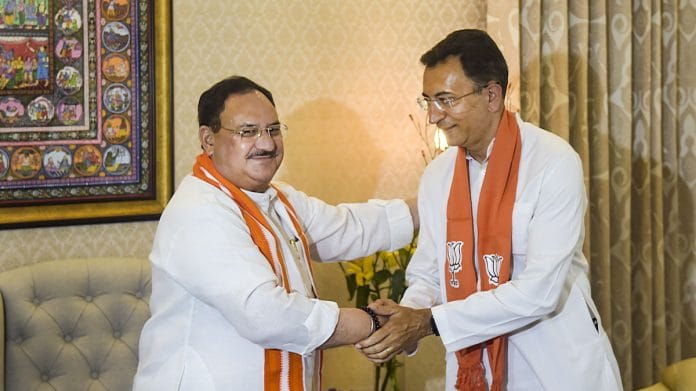If one read political stories or watched political news on ‘national’ media in the last two days, the top story was former Congress MP Jitin Prasada joining the BJP. Nearly every ‘national’ newspaper had it on their front page, and, on television news channels, it was an all-day ‘breaking’ news story. Expectedly, there were ‘experts’ immediately writing opinion articles and ‘analysts’ analysing the impact of this seemingly significant development on the political landscape of Uttar Pradesh and India.
Perhaps, one pertinent question in the midst of all this is — what do voters in Jitin Prasada’s constituency think about his decision? Do they approve of it or not? Not so surprisingly, none of the ‘national’ media thought it was important or relevant to ask actual voters about their views on this political development, or perhaps did not have the means to do so. Prashnam decided to.
Jitin Prasada’s constituency
Jitin Prasada was a Congress MP from Uttar Pradesh twice – from Shahjahanpur in 2004 and from Dhaurahra in 2009. He lost from Dhaurahra in 2014 and 2019. He also contested the 2017 assembly election from Tilhar, an assembly constituency in Shahjahanpur parliament constituency. Remember, a Lok Sabha constituency is divided into many assembly constituencies.
We asked nearly 1,500 people across 10 assembly constituencies in Shahjahanpur and Dhaurahra in Uttar Pradesh about their views on Jitin Prasada’s move. These 1,500 voters were chosen randomly using scientific sampling techniques. We first asked the people if they knew who Jitin Prasada was. To only those that recognised him correctly, we asked a subsequent question – what is your view of Jitin Prasada’s move to the BJP?
Also read: Jitin Prasada needs BJP, and BJP needs him. The switch was always on the cards
An eye-opener
A shocking 72 per cent of people in these 10 constituencies in Jitin Prasada’s own area could not recognise him as a political leader. Of the remaining people that knew who he was, a majority (52 per cent) said he either made a mistake by joining the BJP, or that it did not matter.
So, in effect, a whopping 87 per cent [72 per cent +(52 per cent of 28 per cent)] of people surveyed in the assembly constituencies of Jitin Prasada’s own Lok Sabha constituencies did not know who he was or thought he made a mistake by defecting, or didn’t care. The raw data is made available here for those that want to verify the results or analyse it further.
When nearly 90 per cent of voters in Jitin Prasada’s constituencies in interior Uttar Pradesh were agnostic to this political development, it seems a bit inane for the ‘national’ media to go berserk over such a non-event. But this dissonance between ‘national’ media’s editorial judgement of political stories vis-à-vis actual public feedback from the ground is an incessant feature of Indian politics and its media. The extreme ‘Delhi-isation’ of media has rendered it irrelevant for India’s political discourse, and certainly, Prime Minister Narendra Modi seems to have understood this acutely, as is evident in his nonchalant treatment of the ‘national’ media. But then, it also raises the question – why did the Congress party accord Jitin Prasada such treatment as a senior political leader when it seems clear that he does not enjoy much recognition or importance among his own voters? Perhaps, this is where the Congress party’s woes lie.
Rajesh Jain is founder, Prashnam, an AI technology start-up that aims to make opinion gathering more scientific, easy, fast, and affordable. Views are personal.
The article is part of ThePrint-Prashnam Vox Pop series.
(Edited by Neera Majumdar)






